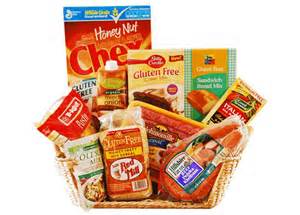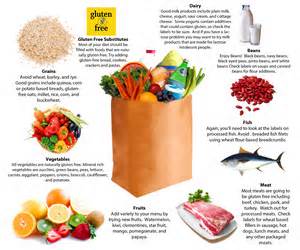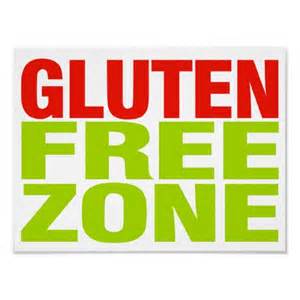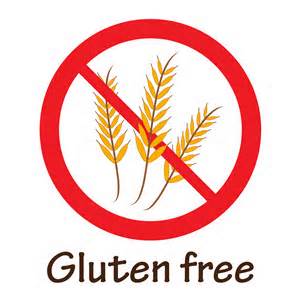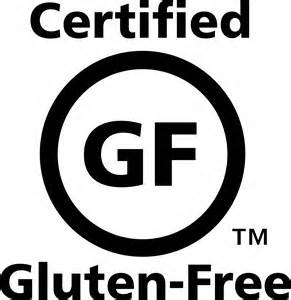Should You Be On A Gluten Free Diet?
Is It Possible You Have Celiac Disease Or Gluten Sensitivity?
Gluten Free Diet To Lose Or Gain Weight
So what is all of this about? According to U.S. News & World Report, nearly 15 to 25 percent of consumers are buying and following gluten free diets today even though they do not know if they have gluten sensitivity or Celiac disease.
Why? Because it helps them either to lose or gain weight. Yes, some people are trying to gain weight.
Sadly, most people who are allergic to gluten and have Celiac disease have never been diagnosed by a doctor even though they suffer some symptoms.
The following information is provided to help you find out if you may be gluten sensitive. Symptoms, diet and diagnosis are addressed. Just select a topic and you will be taken directly to that section. Or, you can scroll down to view them all.
- Gluten-Allergies and Celiac Disease Symptoms
- Vitamins And Minerals Are Important
- Initial Diagnose and Cross Contamination
- Cross Reactors
- Conclusion
- Shop Gluten Free Diet Books
Gluten Allergies and Celiac Disease Symptoms
Below are some of the most common symptoms of gluten-allergies and Celiac disease. If you should notice you, your child or adult experiencing any them, consider eliminating gluten from their diet and contact your physician to perform the necessary tests to confirm that your observations are correct.
Back to Gluten Free Diet Topics.
Gluten Allergies Symptoms
- Abdominal bloating and pain
- Attention Deficit Hyperactivity Disorder (ADHD)
- Chronic diarrhea
- Constipation
- Delayed growth and puberty
- Dental enamel defects of the permanent teeth
- Failure to thrive
- Fatigue
- Fibromyalgia
- Irritability and behavior issues
- Pale, foul-smelling, or fatty stool
- Short stature
- Vomiting
- Weight loss
Back to Gluten Free Diet Topics.
Celiac Disease Symptoms
- An itchy skin rash called dermatitis herpetiformis
- Arthritis
- Bone loss or osteoporosis
- Bone or joint pain
- Canker sores inside the mouth
- Depression or anxiety
- Fatigue
- Infertility or recurrent miscarriage
- Missed menstrual periods
- Seizures or migraines
- Tingling numbness in the hands and feet
- Unexplained iron-deficiency anemia
As you can see from the symptoms listed above you need to be observant of your child or family member if they exhibit any of them. If you should notice something unusual in them, you can eliminate gluten from their diet and see how they are progressing.
All persons showing signs of any of these symptoms will be a lot healthier if they start on a gluten free diet immediately. Gluten is a protein particle found in all forms of wheat, barley and rye. Gluten is also found in wheat additives, the most common additive used in American food products.
Therefore, anyone on a gluten free diet, must forgo all products containing wheat, barley, and rye, and their various derivatives, and additives containing these ingredients. If eaten, they can suffer an allergic reaction to them. Or, that the nutrition from these foods will not be retained in the body but excreted out.
In some cases, individuals who have Celiac disease or are sensitive to gluten, may also be allergic to other products such as nuts, soy, corn, and dairy foods as well. You need to be observant to your child’s or family member’s reaction when eating these types of foods. If you should notice a reaction to them, just eliminate them from their diet.
Back to Gluten Free Diet Topics.
Vitamins and Minerals Are Important
Just as it’s important for you to receive the proper amount of nutrition in your diet, it is also important for those who have sensitivity to gluten receive these nutrients in their diets as well. Getting the proper amount of these nutrients is vital if they are to grow healthy and maintain their weight.
Be sure to select a wide variety of foods that include these valuable vitamins and minerals in them. If not, you will have to make up for this deficiency with some type of vitamin and mineral supplement. Be careful here as some of these supplements may contain hidden gluten as a binding agent.
There are now many more grocery stores carrying a larger line of gluten free products so consumers can probably find a wide-variety of selections that their child or adult would like to eat or consume.
You can purchase gluten free flour where you can make some home-made items like pasta, pizza, cookies, pies, cakes, and breads all gluten-free. Many of these baked food items taste so good that it’s difficult in distinguishing them from their gluten-counterparts.
Here are some of the key nutrients the gluten free foods you prepare should include in them:
-
Iron
-
Calcium
-
Fiber
-
Thiamin
-
Riboflavin
-
Niacin
-
Folate
Some of the above vitamins and minerals can be given to the gluten free dieter in their normal meals. However, it’s imperative that they receive the proper daily level of these vitamins and minerals for their age and gender. If this cannot be accomplished through the preparation of normal meals, a diet supplement must be used.
Another area not to overlook is to ensure all persons in your family receives their daily amount of protein from the meals and snacks they consume. The level of protein will vary from person to person. Here is a website http://fnic.nal.usda.gov/fnic/interactiveDRI/ that has a handy calculator to assist you in determining the proper daily values of protein, vitamins and minerals. Check it out.
Back to Gluten-Free Diet Topics.
Initial Diagnose & Cross-Contamination
Many individuals when they discover that they are allergic to gluten, at first, may have some difficulty in switching over from gluten to gluten free diet. This is a natural reaction. However, firmly and sternly make sure that they stick with the gluten free diet plan. Failure to do so will result in their body not getting the proper nutrition from the foods they are consuming and can cause other health issues later.
Also, they can still get a reaction from gluten free foods as if it was contaminated with gluten before serving. This is known as cross-contamination. It’s important that the gluten free dieter eat their food using separate utensils from other family members and their food is being cooked in separate pots and pans as this is a major cause of cross-contamination.
Or, be sure to thoroughly wash the pots, pans, and utensils after being in touch with gluten foods before using them when preparing gluten free meals. Cross-contamination can also happen during the manufacturing process as well. Be sure to contact the manufacture if you are not sure if the product they sell is totally gluten free by being processed on gluten free equipment and facility.
Over time the dieter’s body will begin to heal and start receiving the nutrients from the gluten free foods they are consuming and should show some positive signs of a change in their behavior and health.
Back to Gluten-Free Diet Topics.
Cross Reactors
As individuals are on the gluten free diet, they may eat or drink something that will trigger the same reaction they had when eating gluten. These foods and ingredients are called “cross reactors.”
A cross reactor, even though it’s gluten free, can cause the same reaction as if you are ingesting gluten into your body. The immune system will treat this as an invader just like gluten and you will experience the same reaction and effects as if you have ingested gluten.
These foods must be avoided at all costs. It is possible that some individuals may not experience any reaction to some or all of these cross reactor foods.
Below is a list of cross reactor foods that should be avoided if you are on a gluten free diet:
- Caffeine
- Instant Coffee
- Dairy products (Casein)
- Yeast (Brewer’s yeast and Baker’s yeast)
- Sugar & Fructose (High Fructose Corn Syrup)
- MSG
- Soy protein
- Aspartame (Sweetener – No diet sodas)
Note: Drinking fresh ground coffee is OK, but not instant coffee as it contains some cross reactors that effects gluten free dieters and should be avoided.
As the meal planner you need to take the time to read the ingredients on the package of the gluten free product before purchasing them so they do not contain any of the ingredients listed above. Today, more and more grocery stores are providing the consumer with greater and wider selections of gluten free foods and products to choose from.
Back to Gluten-Free Diet Topics.
Conclusion
As you can see, some parents may have a difficult time in trying to keep their child on a gluten free diet. There are many side effects an individual that is on a gluten free diet may encounter if they are not told. It is up to you the meal planner to ensure that these side effects and cross reactors are not ingested by the dieter on a gluten free diet.
Another area of concern is cross-contamination. This can happen in the home or even when visiting with relatives on holidays. Be sure to let them know of your child’s sensitivity to gluten. Family members should wash their hands after handling gluten before touching the person allergic to gluten.
You may have to restrict your child not to exchange any of their food with other children at school as the food being received from other students could be contaminated with gluten, so it’s safe for them not to do this.
When buying any food in the grocery store always look for the certified gluten free logo on the product. This ensures that the contents are gluten-free and safe to consume.
Back to Gluten Free-Diet Topics.
Shop Gluten Free Diet Books
Below are some excellent books on gluten free foods and delicious recipes for quick shopping stop. Click on any image and you will be taken directly to the order page for that item.
Back to Gluten Free Diet Topics.
Go back to the Gluten-Free Diet with Nutrition home page.
